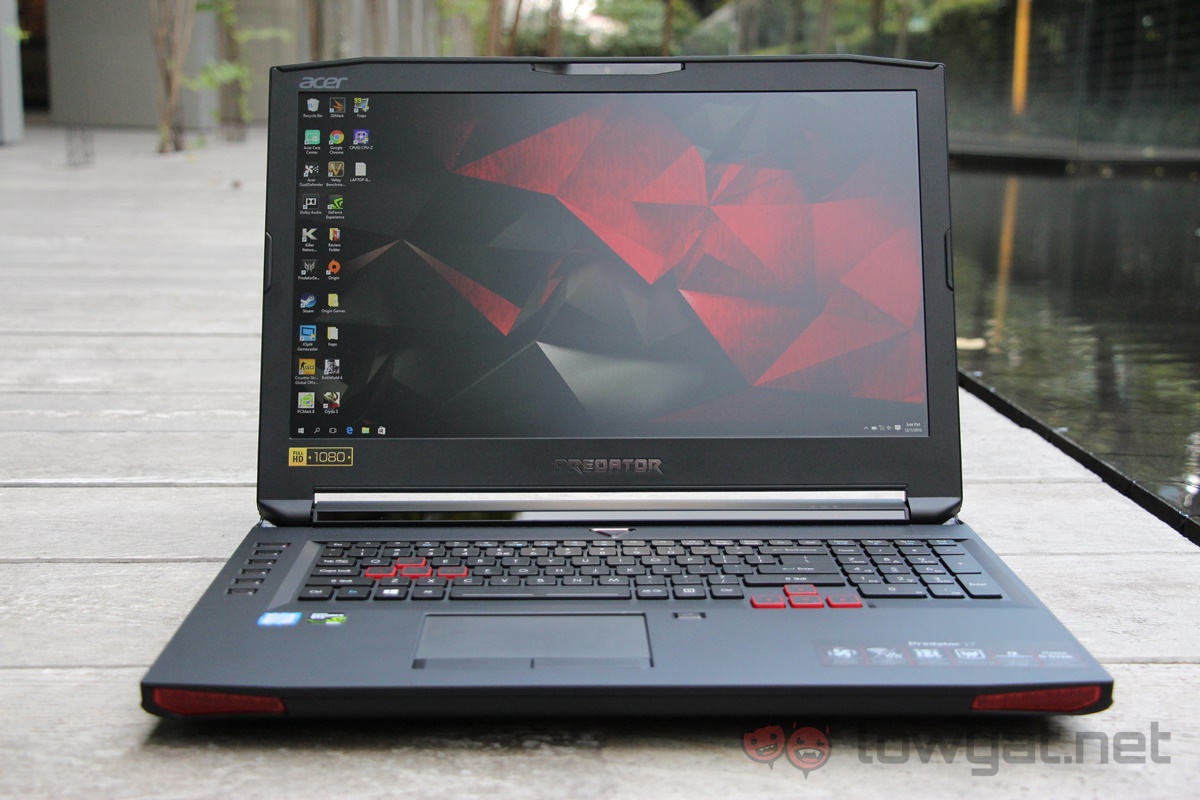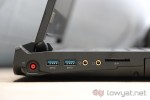The Acer Predator 17 is a behemoth of a gaming laptop, and marks the top end of Acer’s Predator series of gaming laptops. It is somewhat less bulky compared to Dell’s Alienware line, but it doesn’t quite present a slim profile either. What it does do is provide a neat middle ground between style, substance, and of course, performance. Is this enough to make it a worthwhile purchase? Well… It does make a very convincing argument.
Specifications
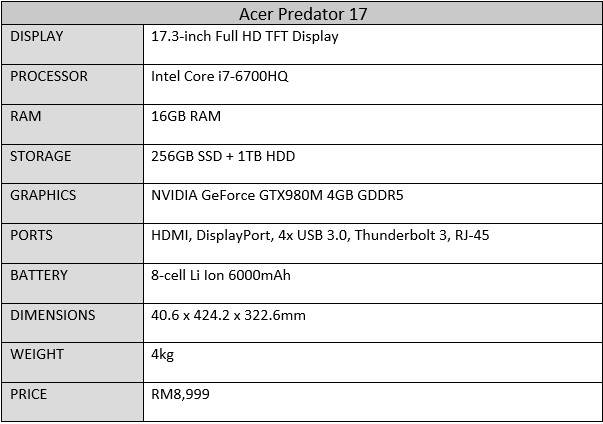
Design
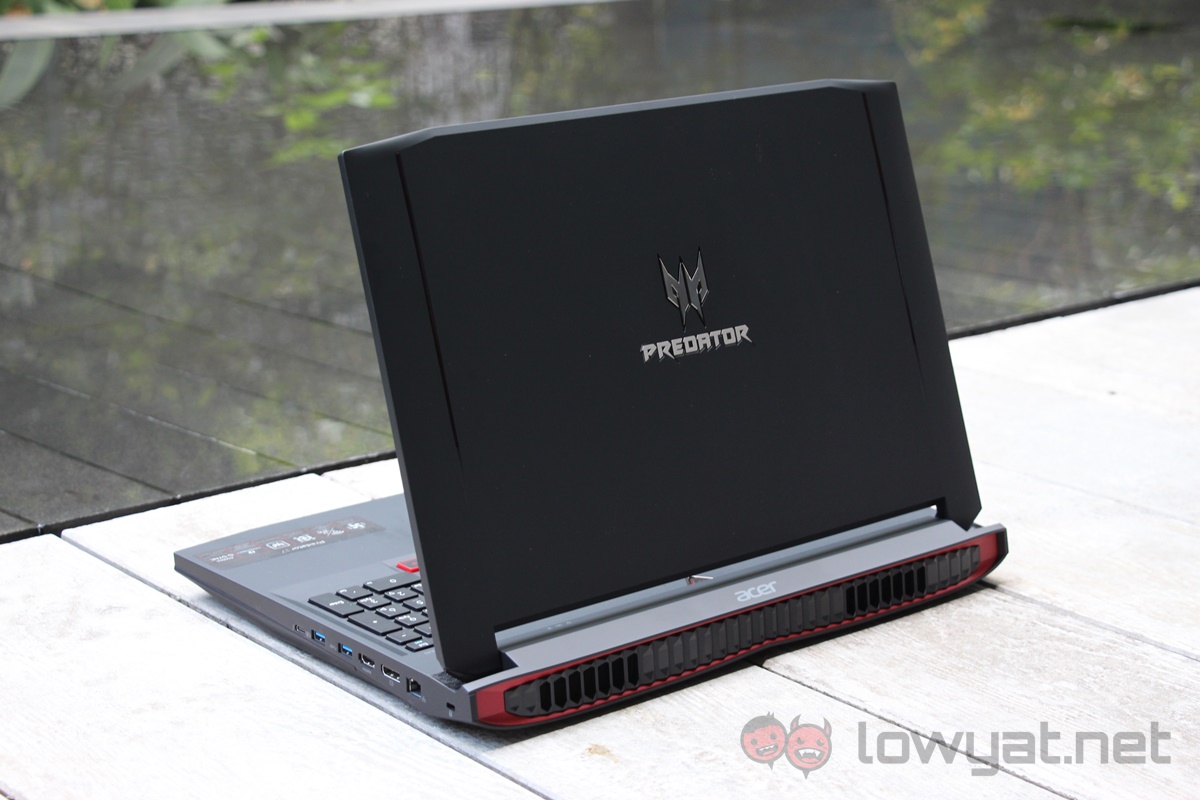
Acer’s Predator 17 is not the biggest gaming laptop in existence, and has a rather svelte figure for something packing a GTX 980M. Like many gaming machines, the front of the laptop sports a pair of grills that evoke the look of a fighter jet. In fact, the whole part of the back has these fins surrounded by a red accent, this time evoking the look of a sports car. As usual, these also function as air intakes for extra circulation; but the image is becoming a bit of a cliché at this point. It’s not terrible, but rather it is so common among gaming machines that it loses its impact (for me at least; younger folk may consider this “cool”).
Fortunately, the orange-red accents are bright and different enough to make the Predator 17 easily identifiable from a distance. There’s not a lot of it, but less is more in this case. Thankfully, Acer also decided against tacky LEDs or flashing lights to brighten things up.
One interestingly good design choice was in the use of soft touch rubber virtually across the entire body. It does attract some smudges occasionally, but they can be easily wiped off – a trade off that’s worth it considering how comfortable the palm rest can be.
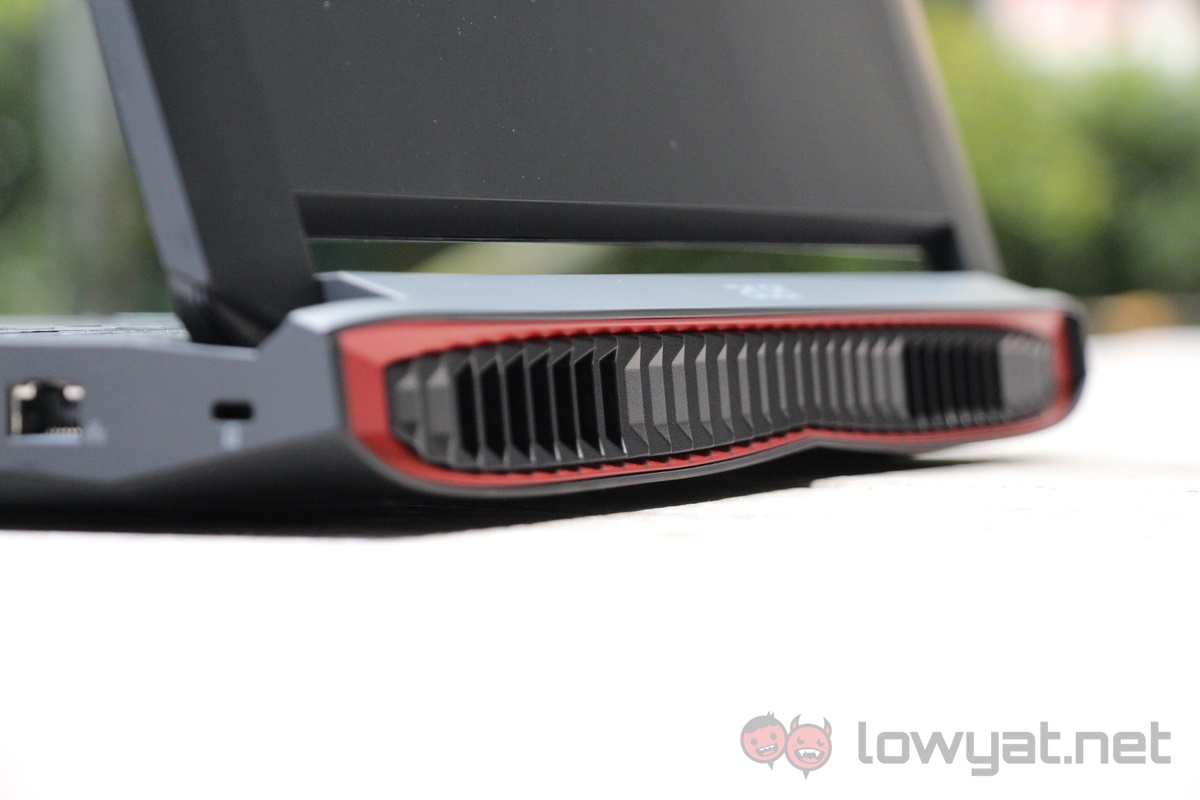
The rest of the Predator 17 just as eye catching, although the most interesting part is actually on the underside. This is due to the inclusion of a subwoofer system, which has an unpainted metal opening. The difference in texture and colour makes its stand out from the rest of the panels and makes for a very eye-catching visual. Sadly, this is all underneath the chassis and will probably go unnoticed by many.
Also located on the bottom of the Predator 17 is the switch to release the swappable optical drive. Acer provides a ‘Predator FrostCore’ module with the Predator 17, which is a tray containing another cooling fan that fits in the slot to provide additional cooling for the GPU. In all honesty, I didn’t notice much of a difference with the extra cooling; but it could make a difference in places with less capable air-conditioning systems. The idea of the FrostCore feels like a missed opportunity, considering that the slot could have easily been used to add additional storage, or even slap in another GPU, if Acer was feeling particularly adventurous.
For now, the only modular Core that Acer offers is the FrostCore. And that’s quite disappointing.
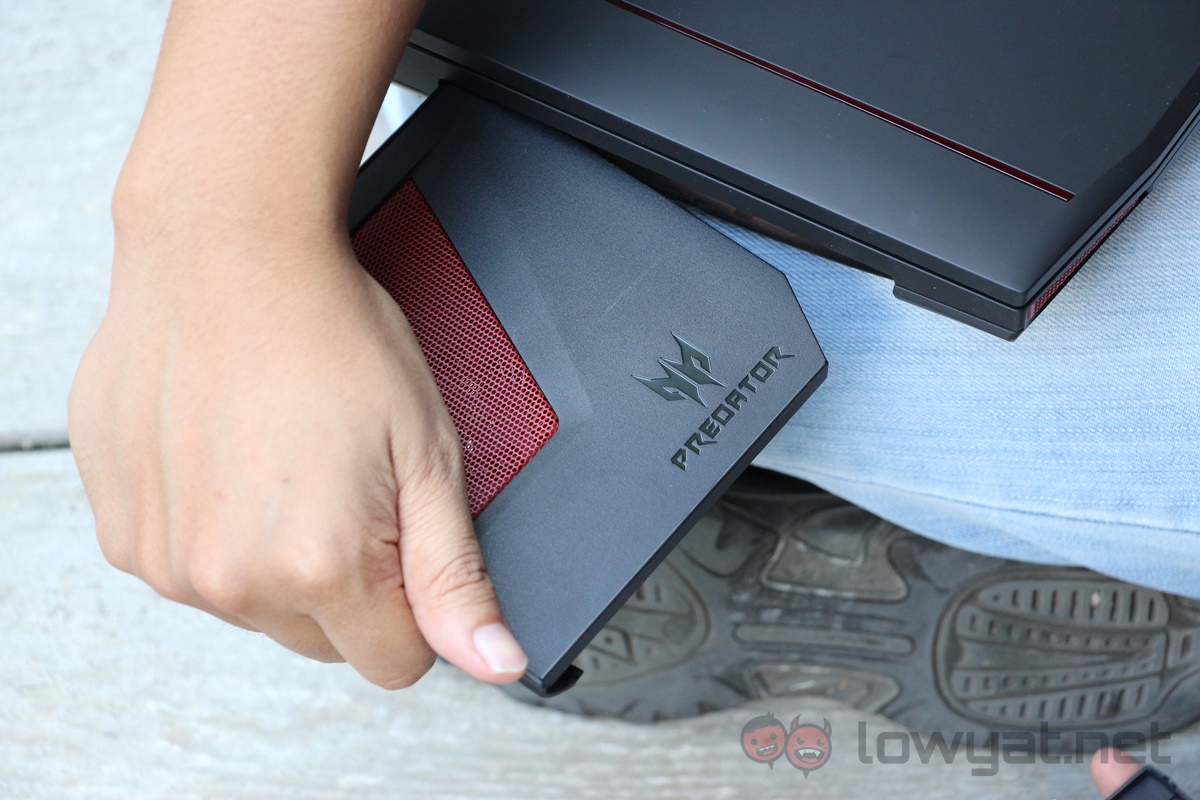
What does make the difference on the Acer Predator 17 is the keyboard, which provides just the right amount of tactile feedback to make typing an extremely pleasant experience. It’s still a little on the shallow end for something this thick and cannot compare to having a mechanical keyboard, but it definitely is one of the better keyboards on any gaming laptop I have ever used.
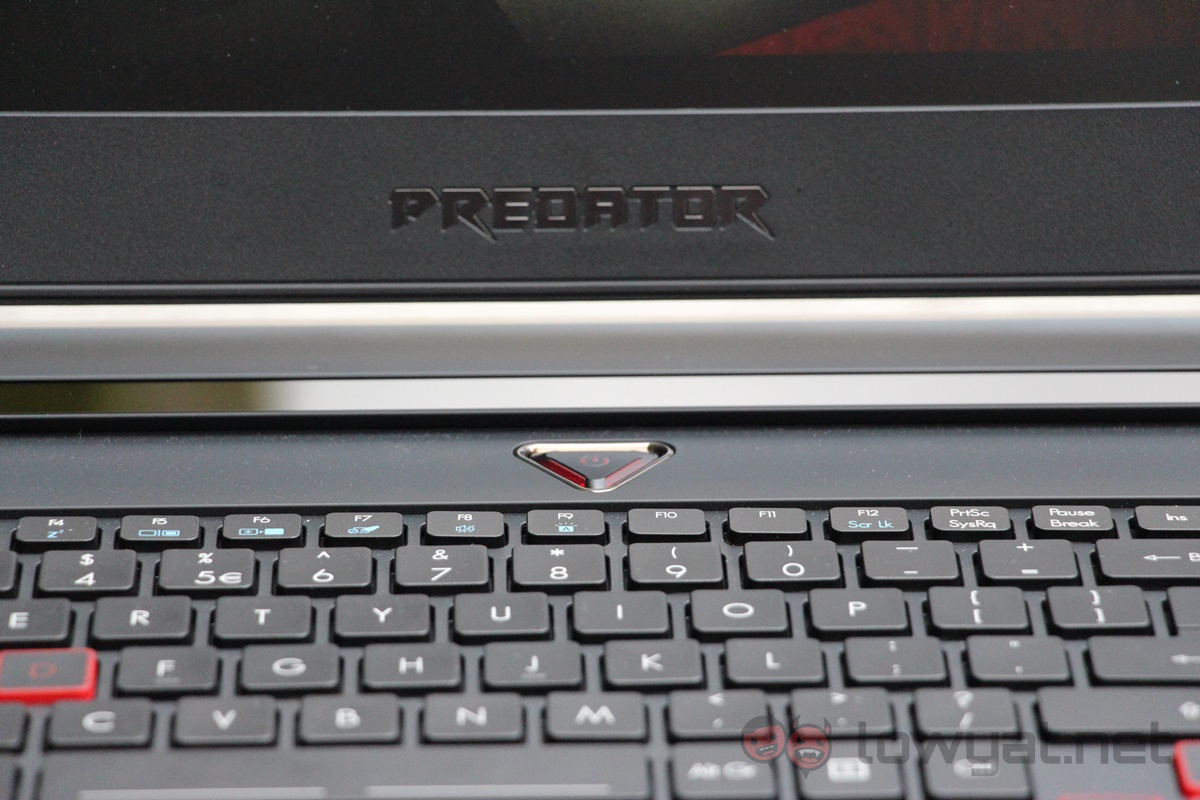
If there is one down side to the Predator 17, it would be the size. The weight and design of the Predator 17 makes it feel like something that people would want to carry around, and not just use as a transportable gaming rig. That isn’t happening since the display makes it too large to fit comfortably in most laptop bags.
That being said, most of us gamers understand that gaming laptops are portable stations instead of truly mobile devices. Which means that we aren’t too worried about our laptops resembling cairns meant to construct Stonehenge as long as games run smoothly.
Performance
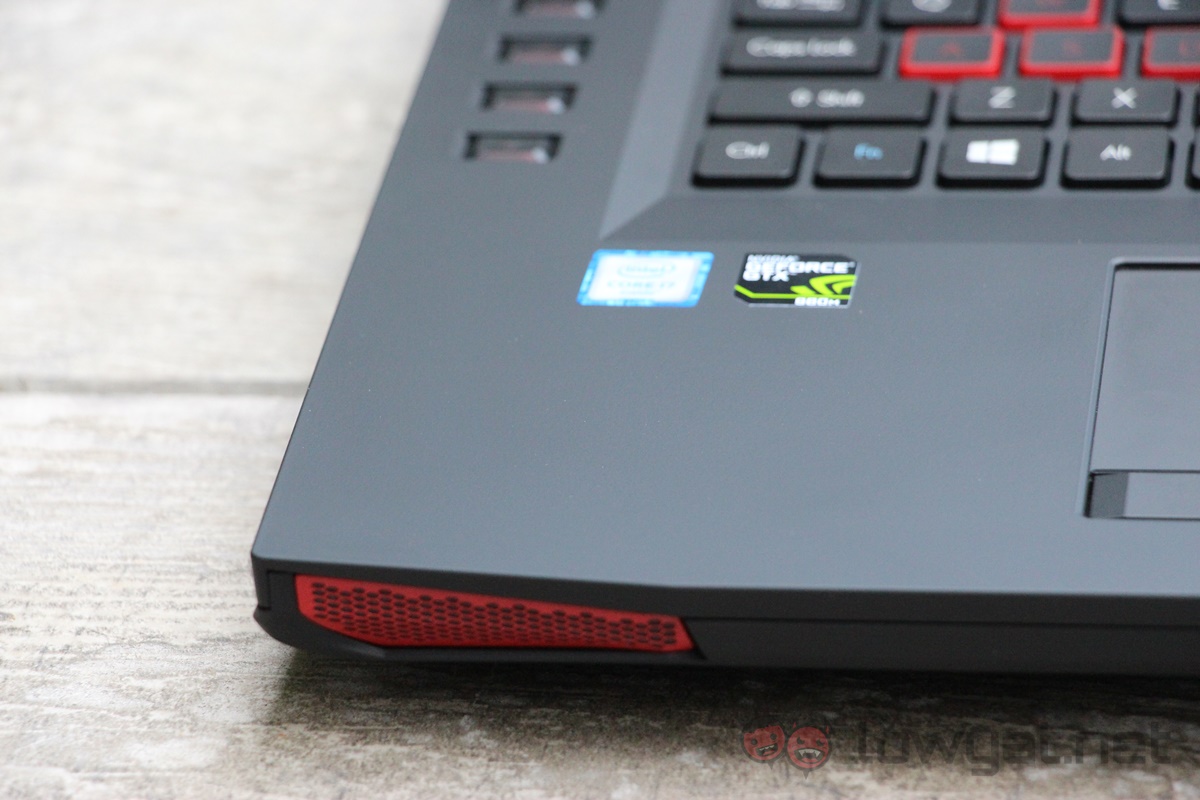
The Acer Predator 17 has rather beefy internals, which translates into excellent gaming performance. As our benchmarks will show later, even Crysis 3 runs at an acceptable 30 fps average at 1080p with textures set to High. Naturally, this lead to the machine being commandeered for after-work CS: GO sessions by coworkers who had nothing to do with this review. Battlefield 4 was similarly smooth, and hit well over 100 fps even with the graphics settings set to maximum.
There was, however, one small issue I experienced while using the Predator 17. I have a habit of resting my palms on the laptop while using it, like most humans do. On the Predator, this led to the edge of the chassis digging into my forearms; making it uncomfortable in extended use.
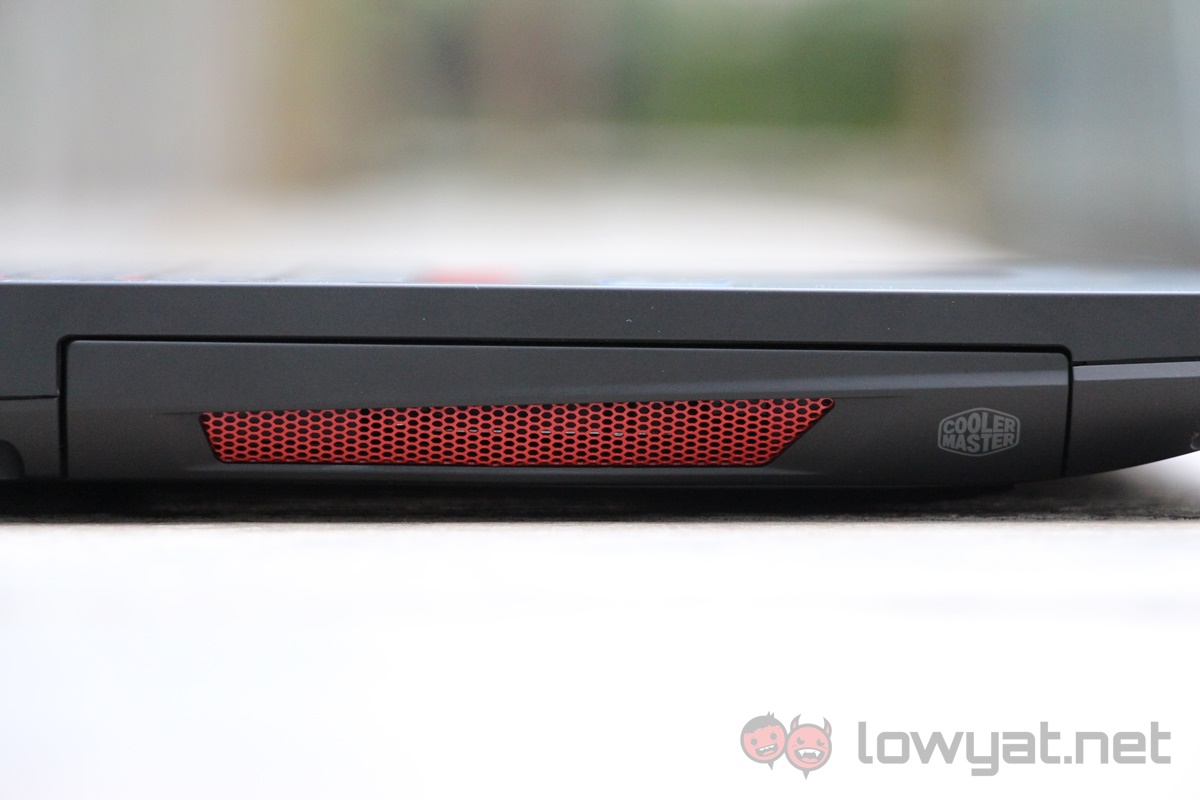
The swappable fan is meant to provide an additional cooling, and it perhaps helps a little. The tradeoff is that there is a little extra noise from the extra running motor, but the chassis muffles the sound reasonably well. As far as tradeoffs go, this one is decent enough that it doesn’t affect the final score (if we gave scores for this thing).
Benchmarks
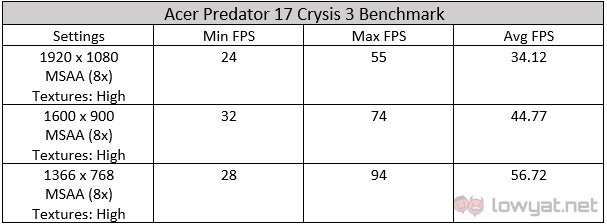

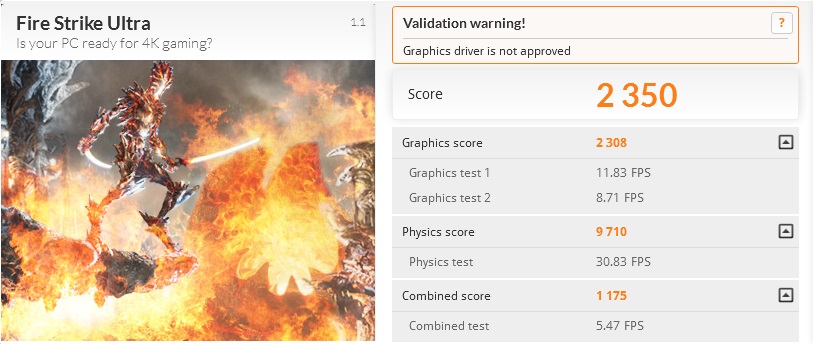
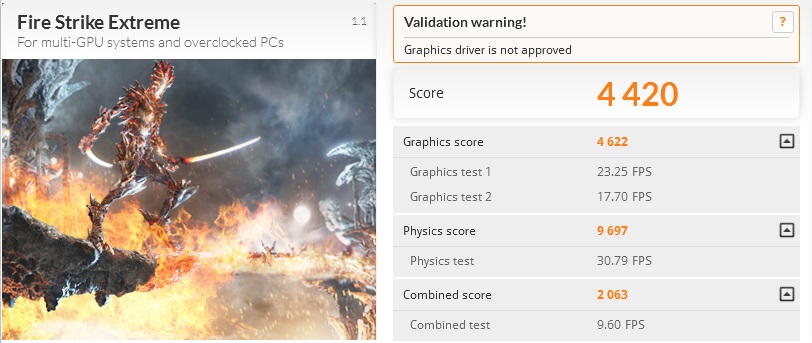
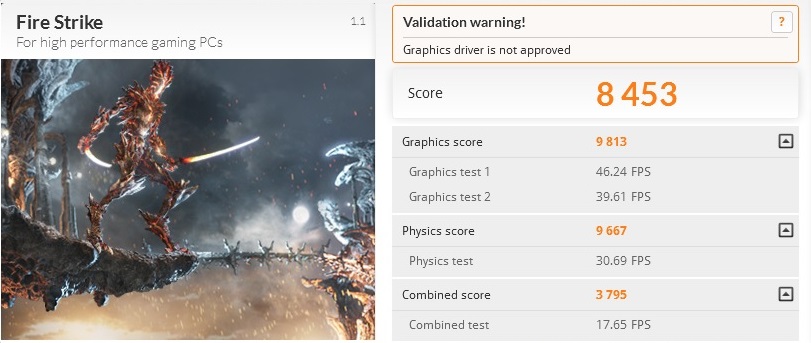
Battery Life
Measuring the quality of a gaming laptop by its battery life is like judging the intelligence of a war elephant based on its ability to do algebra. Sure, it theoretically could pull it off; but that’s not why you own one (although the gaming laptop would be amazing at algebra).
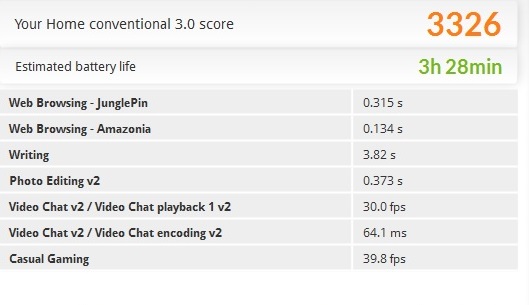
Despite that unwarranted comparison, the Predator 17 has a decent amount of battery life. Our benchmarks put it at three hours of battery power with the energy settings switched to high performance. It comes in a little less when using our usual movie loop test; the battery holds out for about two and a half hours on a Full HD movie with the display set to 100 percent.
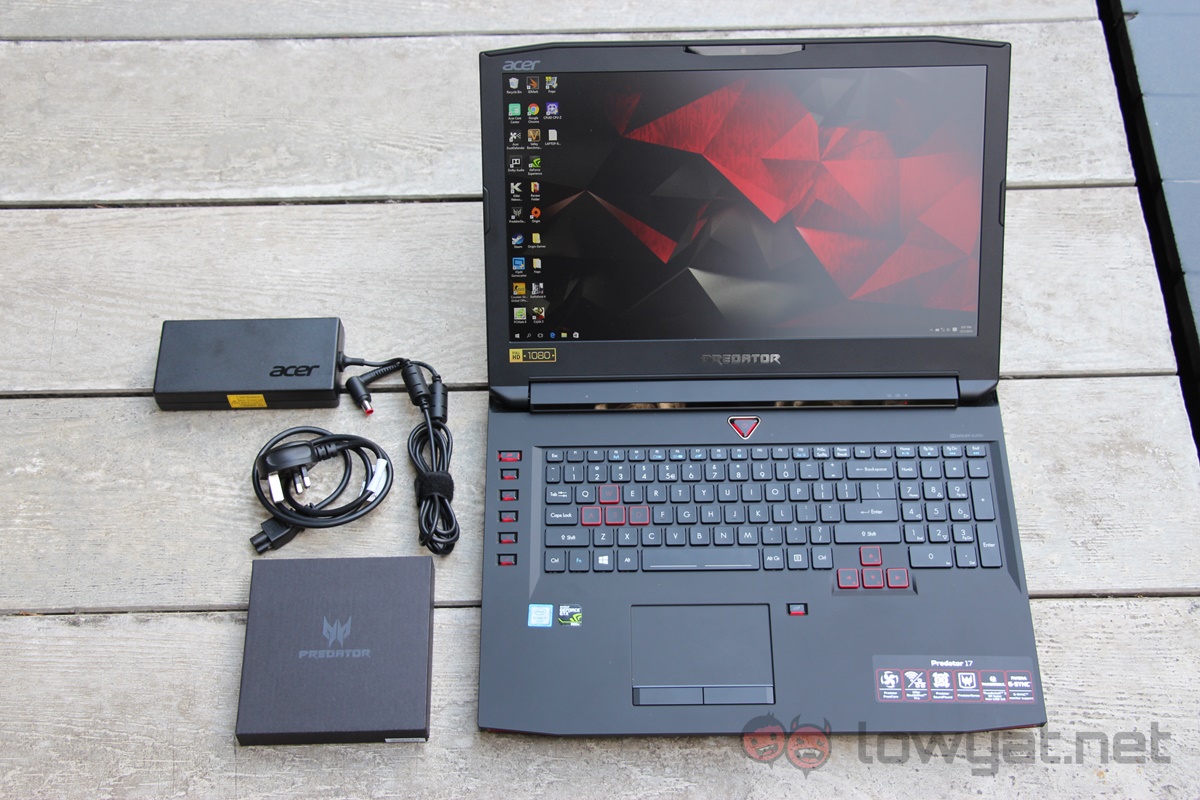
It’s not actually bad for a machine that will generally be plugged in while in use. The amount of power means that one might be able to get away with a single game of Dota 2 while waiting for people to turn up or just to kill time between classes (or meetings).
Competition
Acer Aspire V Nitro
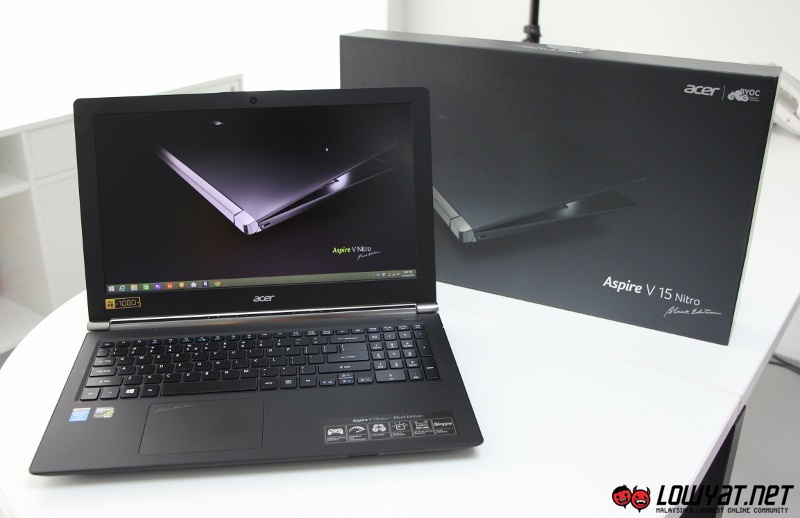
Where the Predator series caters to the premium gaming segment, Acer also has the V Nitro range, which is a series of reasonably-priced, high performance laptops that are more than adequate for midrange gaming (which is something I’m more accustomed to). I’ve reviewed an older version of the Acer Aspire V Nitro Black Edition, and found it to be absolutely worth the asking price.
At the moment, the 17-inch Acer V Nitro is being sold for RM5,699; and the only significant difference is that the V Nitro ships with a GTX 960M instead of the GTX980M. It’s quite a difference, admittedly, but the budget conscious consumer might be better served with the V Nitro instead of the Predator.
MSI GS70
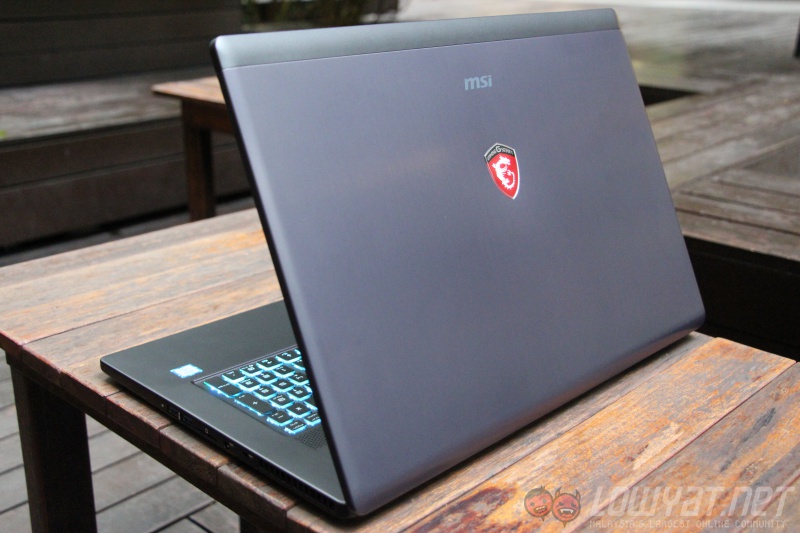
The MSI GS70 costs the same amount as the Predator 17, but features a less powerful GTX 970M graphics card. On the other hand, it is also much thinner and lighter than the Predator 17; which makes it far easier to transport. Mobility is a big deal for something like a laptop, and it might be a good idea to give up a little graphics power for the ability to fit in a backpack.
On the other hand, the reverse of this is also true. Who needs mobility when there are better graphics to be enjoyed? That’s a question which differs based on your preference.
Conclusion
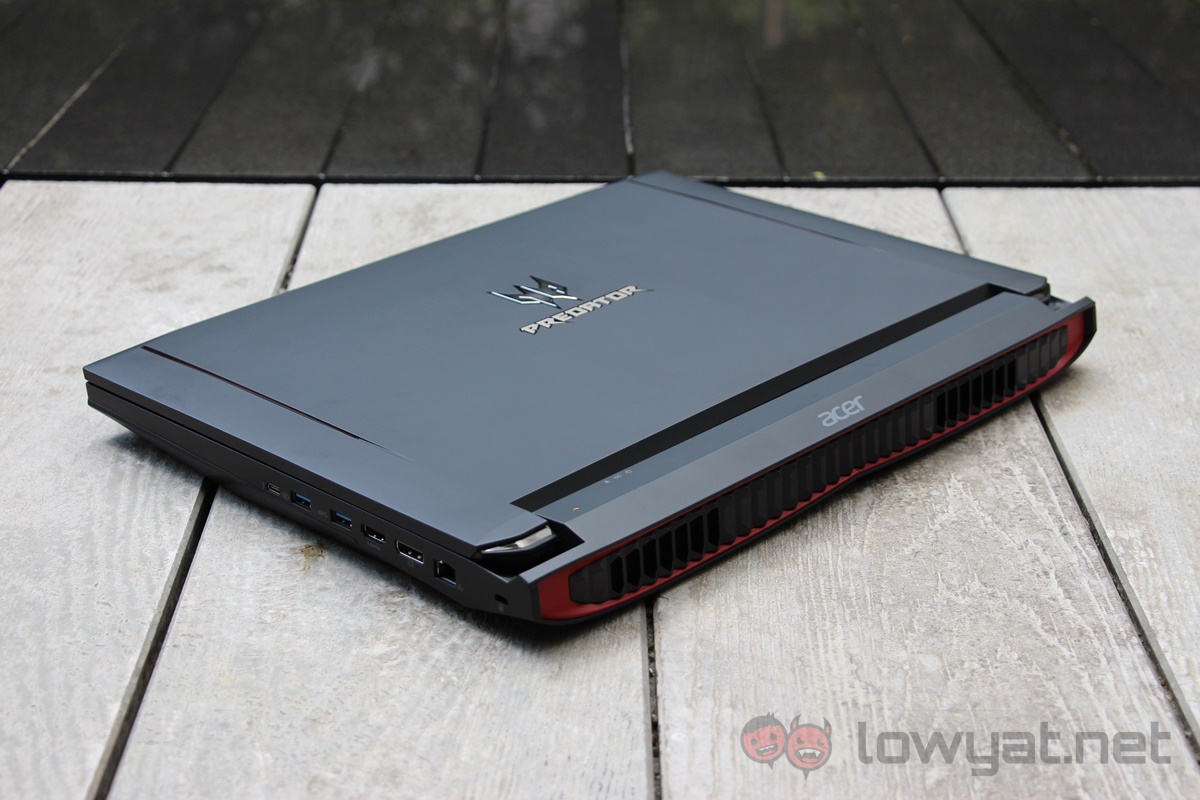
Acer has found a very nice intersection between price, performance, and aesthetics in the Predator 17. It isn’t too expensive as far as gaming laptops go, and provides quite a bit of bite for its bark. The swappable optical drive/fan option is a cute trick, but doesn’t quite add anything to the experience. Acer could have left it out, lowered the price, and gained even more of an advantage against its peers. I certainly blanked out its existence about halfway through the review.
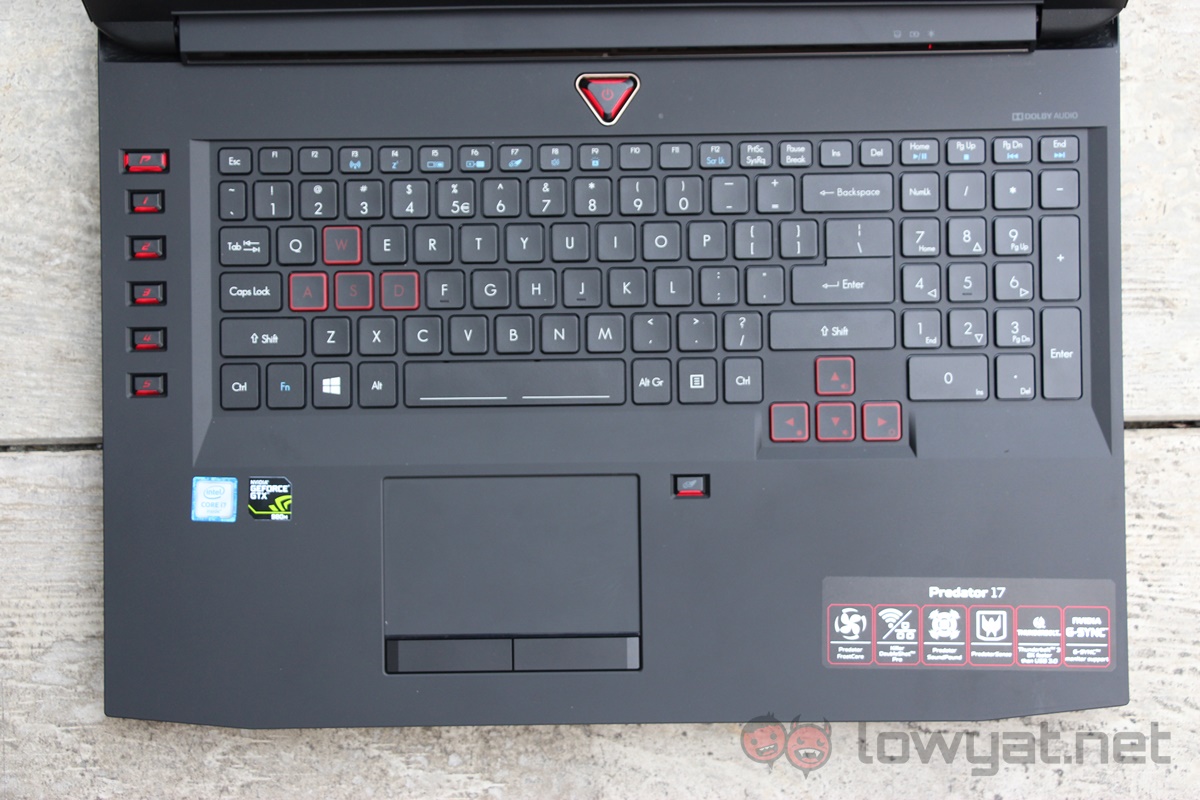
Despite that, the Predator 17 remains a good contender for those looking for a no-compromise, high-end gaming laptop. Acer’s re-entry into premium gaming laptops is off to a promising start.
Follow us on Instagram, Facebook, Twitter or Telegram for more updates and breaking news.


